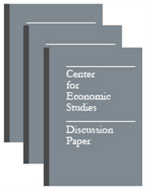
An official website of the United States government
Here’s how you know
Official websites use .gov
A .gov website belongs to an official government organization in the United States.
Secure .gov websites use HTTPS
A lock (
) or https:// means you’ve safely connected to the .gov website. Share sensitive information only on official, secure websites.
-
//
- Census.gov /
- Library /
- Census Working Papers /
- Fifty Years Of Family Planning: New Evidence On The Long-Run Effects Of Increasing Access To Contraception
Fifty Years Of Family Planning: New Evidence On The Long-Run Effects Of Increasing Access To Contraception
Fifty Years Of Family Planning: New Evidence On The Long-Run Effects Of Increasing Access To Contraception
Abstract
This paper assembles new evidence on some of the longer-term consequences of U.S. family planning policies, defined in this paper as those increasing legal or financial access to modern contraceptives. The analysis leverages two large policy changes that occurred during the 1960s and 1970s: first, the interaction of the birth control pill’s introduction with Comstock-era restrictions on the sale of contraceptives and the repeal of these laws after Griswold v. Connecticut in 1965; and second, the expansion of federal funding for local family planning programs from 1964 to 1973. Building on previous research that demonstrates both policies’ effects on fertility rates, I find suggestive evidence that individuals’ access to contraceptives increased their children’s college completion, labor force participation, wages, and family incomes decades later.
Others in Series
Working Paper
Working Paper
Working Paper
Share
Related Information
Some content on this site is available in several different electronic formats. Some of the files may require a plug-in or additional software to view.
 Yes
Yes
 No
NoComments or suggestions?


Top

